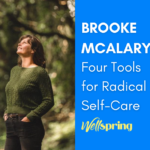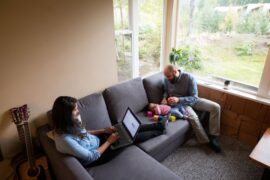While dating is easy to get fixated upon, there is value in flying solo in order to find our true selves and discover how strong we are on our own.
If we are always looking for our “other half” then how can we be whole on our own?
Being single is becoming more and more common. In fact, singles are taking up more of the population as marriage rates are declining worldwide. Across Australia and New Zealand in 2019, 14.1% of women in their late forties (45-49) had never been married before. That is 1 in every 7!
The benefits of being single are explored in The Unexpected Joy of Being Single (2018) by renowned British author Catherine Gray. The book is informative, highly entertaining and remarkably relatable for fellow singletons. It charts Gray’s journey from obsessed love addict to content single woman. She recounts her dating experiences from her teens and twenties, leading to her early thirties “one year of no dating” experiment.

Singles are also categorically more self-sufficient, they tend to complete tasks and challenges by themselves. Single self-sufficiency is also said to correlate with better mental health. Singles also tend to sustain closer connections with other non-romantic relationships such as parents, friends or siblings.
During her break from boyfriends, Gray remains entirely by herself for this period. She learns a lot about herself and who she is when she is on her own, while also attempting to understand and explain her past dating fails in hindsight. The book offers readers advice encouraging singles to embrace who they are, regardless of relationship status.
There is nothing inherently wrong with living without a partner. In fact, singles are known to possess some important characteristics that set them apart from couples. Singles generally are more optimistic, experience a greater amount of personal growth, are more autonomous, all the while possessing the same level of self-esteem as a married person.

It is okay to be alone. Being “alone” romantically does not necessitate loneliness. There is no mandate requiring a relationship. Happiness and contentedness can be found entirely within ourselves. We don’t need a partner to tell validate our identities.
There is no rush to find a partner or any requirement to have one in order to flourish as a member of society. Singles are fully fledged, strong and independent people that add value to the community on their own. Gray says, “I can wait,” reminding single readers that there is no harm in being patient for the right person to come along.
There is no shame in focusing on other non-romantic, yet still valid and important aspects of life.

Gray believes there is value in being single to fully understand oneself first before joining with a partner and there is hazard inherent in settling for first available options. “At some point we all have to learn how to walk into a party or a restaurant alone,” she says, “Otherwise, we will be willing to walk in with anybody.”
We all have to learn how to walk through life alone. There is no innate need or obligation to share all experiences with another, there is nothing wrong with discovering everything that life has to offer as a single person.
In fact, without a partner to attend to, there is far more time for self-discovery, trying new things and nevertheless forming precious and meaningful relationships. Think about how many non-romantic relationships allow us to feel comfort and connection!

Looking for our “other half” is not necessary when we understand that we are not halves ourselves at all and begin to believe that we are whole on our own.
Gray acknowledges that while for the most part her year off from dating transformed her outlook and lessened her obsessive love craving traits, she still has days where she slips up and fixates on the idea of a relationship. Setbacks and flaws are normal. Sometimes, even as a happy single person, we can still wish for a partner, while nevertheless acknowledging that we are okay on our own.
The desire for commitment, attachment or even sex in the routine of a long-lasting relationship is the norm. But even if it feels as though everyone around us is dating or in love, sometimes relationships are not what they seem on social media.
Everyone is on their own timeline, and no one ever knows what is right around the corner.

Being single is becoming an increasingly available option for women in the 21st Century. Gray says, “We’re single because we can be.” Women are entering and thriving in the workforce and are earning enough income to be the provider for themselves rather than relying on a husband to take care of expenses.
Single people can sometimes romanticise ex-partners or even new potential partners – remembering only the good, fixating on the idealised and unrealistic parts of a person. Gray mentions that in her love crazed days, she would idolise the men she was dating and mentally place them on a pedestal. Even those that were not right for her or just plain toxic.

Romanticising can become addictive – studies show that people in love release chemicals that are like symptoms of drug addiction; so powerful that even when a relationship is over, singles tend to chase that fix they found in romance. Attractive personality traits can be amplified by inner thoughts and obsessions, while worse characteristics can be overlooked in a quest to keep a relationship or crazed crush going.
However, there is no requirement to stay in a relationship that is not right. It is okay to walk away, not everyone has to be the one. Red flags should not be brushed over in an endeavour to sustain romantic attachment. While the obvious answer is to breakup, this is understandably far easier said than done.

Clearly, there are benefits of being alone and there is nothing inherently wrong or bad or lame about being single and being intentionally and resolutely happy about it. We can live life and thrive as an individual on our own to make discoveries about ourselves. We can also form non-romantic connections without the nagging feeling of needing a partner weighing us down.
“It is better to be alone than to be poorly accompanied,” says Gray.







